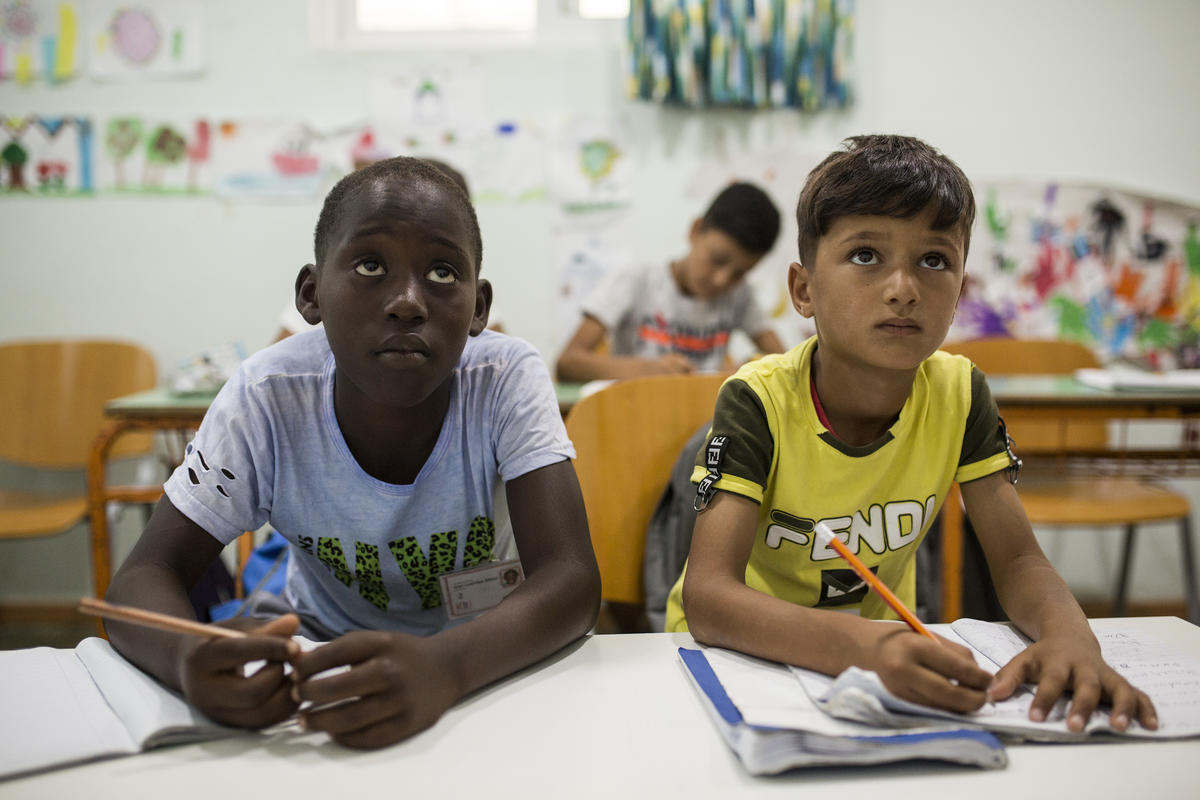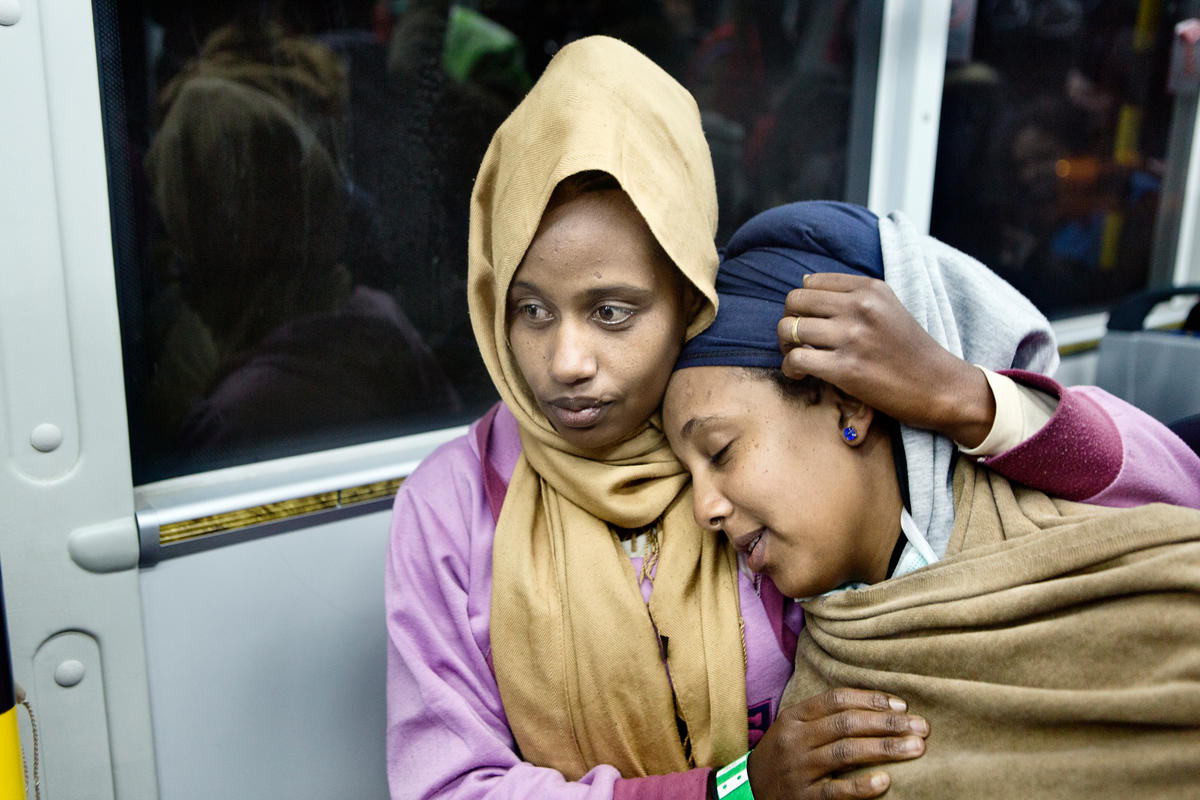UNHCR welcomes Bulgaria's commitment to fix ailing asylum system
UNHCR welcomes Bulgaria's commitment to fix ailing asylum system
UNHCR welcomes assurances from the Bulgarian government of quick action to fix dire conditions for Syrian and other asylum-seekers, as the country strains to cope with increased demand on its asylum system.
UNHCR's Regional Representative for Central Europe, Ms. Montserrat Feixas Vihe, met Prime Minister Plamen Oresharski and other senior officials last Friday. They discussed the need for new accommodation facilities to relieve overcrowding and for asylum-seekers to be released from detention.
So far this year, Bulgaria has received about 3,000 asylum applications, mainly from the Middle East and Africa. This is three times the yearly average of the past decade. August saw a sharp rise to some 50 new arrivals (mainly Syrian families) per day.
Although overall numbers are low relative to some other European countries Bulgaria's asylum system cannot keep pace with the new arrivals. The three existing accommodation centres operated by the Bulgaria's State Agency for Refugees are overflowing, and conditions are both unsafe and dire. People sleep in corridors and cook on flimsy burners in crowded dormitories. TV, internet rooms and child care spaces have been hastily turned into makeshift bedrooms accommodating as many as seven families together. Up to 100 people share a single bathroom, with no separate facilities for men, women and children. Education and recreational activities are scant, and several hundred children are missing out entirely on school.
The overcrowding is straining relations among asylum-seekers themselves who in normal circumstances have to make ends meet on 65 Lev BGN (just over 1 Euro) a day for food, clothes medicine and other necessities.
A slow asylum procedure exacerbates the situation. People typically stay in accommodation centres for a year while their refugee claims are being assessed, even though the law states that applications should be decided within six months.
To address the accommodation shortfalls to date, the Bulgarian authorities have relied on two detention centers designed to house irregular migrants awaiting deportation. In Lyubimets close to the Turkish border and Busmantsi on the outskirts of Sofia, asylum-seekers stay behind bars for up to three months waiting for authorities to move them to an open centre. These detention centres are hosting numbers way beyond their capacity.
At Friday's meeting, UNHCR offered to increase technical assistance to Bulgaria in the form of training and support at every stage of the asylum process from registration to decision-making on refugee claims.
Bulgaria has received about 2,000 Syrians since the start of Syria's conflict two and half years ago. Across the EU, some 47,000 Syrians sought asylum in the same period.
For more information on this topic, please contact:
- Ariane Rummery (Budapest) on mobile: +36 30 530 9633 or [email protected]
- Boris Cheshirkov (Sofia) on mobile: +359 878 507 041.or [email protected]
- Melissa Fleming (Geneva) on mobile +41 79 557 9122 or [email protected]
- Adrian Edwards (Geneva) on mobile +41 79 557 9120 or [email protected]
- Dan McNorton (Geneva) on mobile +41 79 217 3011 or [email protected]







